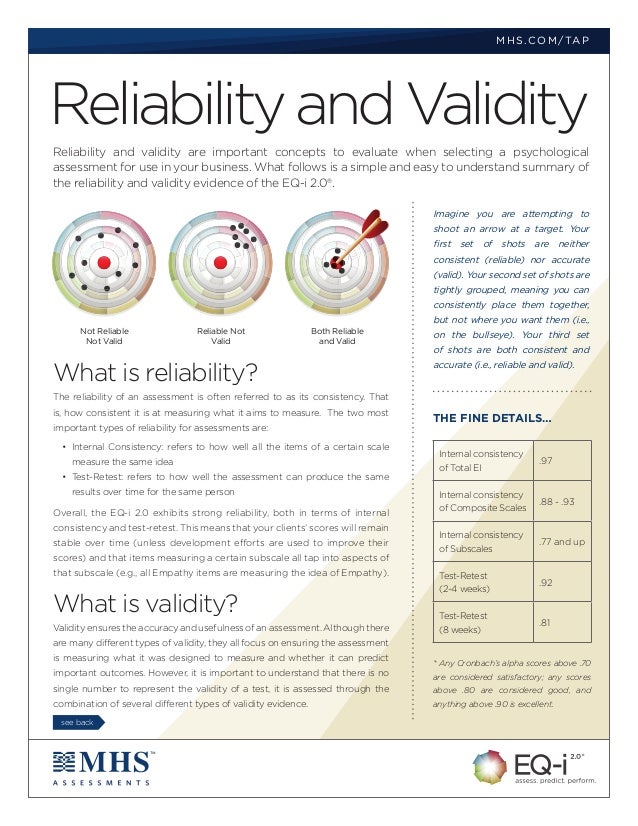

Using multiple sample groups will smooth out these extremes and generate a more accurate spread of results. If you use three replicate samples for each manipulation, and one generates completely different results from the others, there is likely something wrong with the experiment.įor most experiments of natural phenomena, results follow a normal distribution and there is always a chance that your sample group produces results at one of the extremes. If a test is reliable it should show a high positive correlation between repeat scores. Reliability can be determined statistically by calculating the correlation coefficient. This is a little like weighing the bowl several times and using the average reading. To maintain reliability, a researcher will use as many repeat sample groups as possible, to reduce the chance of an abnormal sample group skewing the results. An educational test, questionnaire, or assigning quantitative scores to behavior are also instruments.Īnother way of looking at reliability is by considering it as a way to maximize the inherent repeatability or consistency in an experiment. When we talk about instruments, it does not necessarily mean a physical instrument, such as a mass-spectrometer or a pH-testing strip. If the scale gave a reading of 1 kg and then a minute later gave a reading of 1.5 kg, the error has become so large that the instrument’s reliability is seriously undermined.

There may be slight error here and there – you may notice that some readings differ by just a fraction of a gram – but overall the scale is reliable. A reliable scale will show the same reading over and over, no matter how many times you weigh the bowl. It’s an estimation of how much random error might be in the scores around the true score.įor example, you might try to weigh a bowl of flour on a kitchen scale. Reliability is a property of any measure, tool, test or sometimes of a whole experiment. In science, the idea is similar, but the definition is much narrower. We might talk of a football player as reliable, meaning that he gives a good performance game after game. In everyday language, we use the word reliable to mean that something is dependable and that it will give behave predictably every time.


 0 kommentar(er)
0 kommentar(er)
